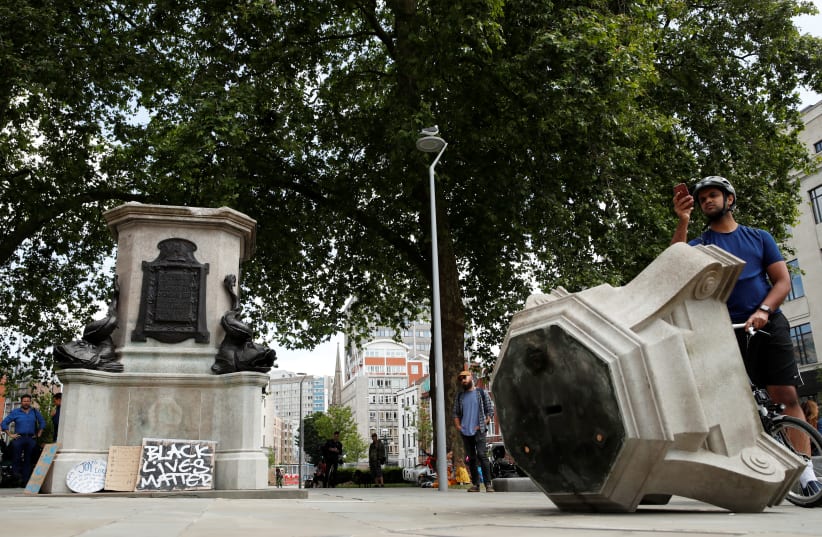Well that was fast - search for "statue of edward colston" on Google Maps and you get a little animation reflecting its new location pic.twitter.com/yqZTmlwWzv
— Simon Willison (@simonw) June 7, 2020
Footage posted on social media showed Black Lives Matter demonstrators cheering on Sunday as they tore down the statue and rolled it into a river after largely peaceful weekend protests in UK cities including London, Manchester, Glasgow and Edinburgh.Colston, who was born in Bristol in 1636 and made a fortune in the 17th century from trading in West African slaves, was a merchant and member of parliament whose wealth was made mainly by transporting about 80,000 men, women and children from Africa to the Caribbean and the Americas, with many dying on route.The bronze statue, erected in 1895, has been a focal point for protests in the past and a petition demanding its removal had recently garnered over 11,000 signatures.The move sparked debate among Britons on whether the toppling of the statue of Edward Colston was vandalism or a historic moment drawing attention to Britain's role in the slave trade."As someone who lives in Bristol, Edward Colston's name is everywhere. The city had painted him into every brick of its architecture. It's about time that changed," British actor Miltos Yerolemou from TV series "Game of Thrones" tweeted."Today was a good day. The first of many, much needed changes."There have been protests globally over racial justice after the death of Floyd, a black American, in police custody last month. He died after a white police officer knelt on his neck for nearly nine minutes.This weekend, protests swept Europe in capital cities including Rome, Copenhagen, Budapest and Madrid and across Britain in solidarity with US protesters.In London, where tens of thousands gathered, one banner read: "UK guilty too."The demonstrations have reignited debate about Britain's role in the slave trade and cities have since looked to remove monuments to slavers and educate the public on the country's history.Protestors in Bristol, England have torn down a statue of a slave trader and thrown it in the harbor. Google Maps has already updated the statue’s geolocation. https://t.co/4UnK3u2p9c pic.twitter.com/yGu5D9eSc2
— Abe Brown (@abebrown716) June 7, 2020
